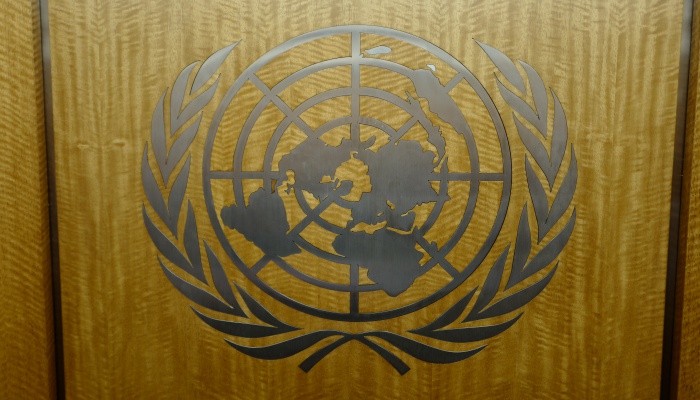Experts from the United Nations Human Rights Committee on Friday raised concerns about Turkey’s implementation of anti-terrorism legislation and its extensive use of emergency powers following a 2016 coup attempt, questioning the measures’ compliance with international human rights obligations, the Stockholm Center for Freedom reported.
During a session reviewing Turkey’s adherence to the International Covenant on Civil and Political Rights, committee experts highlighted the broad scope of Turkey’s Anti-Terrorism Act, which they warned allows for overly expansive interpretations.
A committee expert noted that while Turkey claims its definition of terrorism aligns with constitutional and international standards, the language of the law lacks sufficient safeguards to prevent arbitrary application. This ambiguity, they argued, has facilitated the use of anti-terror provisions against human rights defenders, journalists and opposition figures, raising concerns about restrictions on freedom of expression and peaceful assembly.
The committee also scrutinized Turkey’s response to the failed 2016 coup attempt, during which a state of emergency was declared. Emergency measures included the mass dismissal of over 130,000 public sector employees, including police officers, academics, judges and prosecutors, many of whom faced criminal charges.
The UN experts questioned whether these measures were strictly necessary and proportional to the threat, noting that many of the decrees enacted during the state of emergency were later integrated into permanent legislation.
Experts raised particular concern over the State of Emergency Inquiry Commission, established to review complaints related to these dismissals. Despite receiving over 125,000 applications, the commission reportedly rejected more than 85 percent, leading to questions about the fairness and transparency of the review process. The committee sought clarification on how the commission operates and the extent to which its decisions are subject to independent judicial review.
Further, the committee raised issues regarding restrictions on the independence of the judiciary, citing concerns from the Council of Europe’s Venice Commission about constitutional amendments passed during the state of emergency that expanded the executive branch’s power. These changes, they argued, compromised the separation of powers and judicial independence, allowing the president to make key appointments within the judiciary, bypassing traditional checks and balances.
The committee also noted ongoing concerns about the suppression of dissent, pointing to reports that Turkey’s anti-terrorism laws have been used to target members of the faith-based Gülen movement — whom the government holds responsible for the coup attempt — and other political opponents. Questions were raised about the long-term impact of these policies, including travel bans, revocation of passports and alleged abductions of individuals linked to the Gülen movement from third countries.
Turkish President Recep Tayyip Erdoğan has been targeting followers of the Gülen movement, inspired by the late Muslim cleric Fethullah Gülen, since the corruption investigations of December 17-25, 2013, which implicated then-prime minister Erdoğan, his family and his inner circle.
Dismissing the investigations as a Gülenist coup and conspiracy against his government, Erdoğan designated the movement as a terrorist organization and began to target its members. He intensified the crackdown on the movement following an abortive putsch on July 15, 2016 that he accused Gülen of masterminding. Gülen and the movement strongly denied involvement in the coup attempt or any terrorist activity.
Since the coup attempt Turkey’s National Intelligence Organization (MİT) has conducted operations for the forcible return of more than 100 people with alleged links to the Gülen movement. The latest cases include Koray Vural, a Turkish businessman who went missing in Tajikistan in September 2023 and was found to be in police custody in Turkey the next month. Emsal Koç, who also went missing Tajikistan in June 2023, was found to be in police custody in the eastern Turkish province of Erzurum when the police contacted his family living in the province.
Moreover, the UN body addressed the potential revival of the death penalty in Turkey, expressing alarm over reports that such a move might be under consideration. Experts emphasized that any reintroduction of capital punishment would be a severe regression from international human rights commitments and urged Turkey to adhere strictly to its obligations under the covenant.
The committee’s examination also delved into concerns about Act No. 7262 on the Prevention of the Financing of the Proliferation of Weapons of Mass Destruction, under which many nongovernmental organizations, including human rights groups, face strict oversight and potential sanctions. The UN experts questioned the impact of this law on civil society, asking for detailed data on the number of organizations affected by audits or fines under the legislation.
Additionally, the experts raised concerns about the rights of marginalized groups, including the Kurdish population. They asked for information on Turkey’s policies concerning the use of the Kurdish language in education and media, and the extent to which violence against Kurdish activists is being investigated.
The session, which forms part of a broader review of Turkey’s human rights practices, focused on ensuring the implementation of international standards. The UN committee’s scrutiny of Turkey’s emergency measures and anti-terrorism laws underscores ongoing international concerns about the country’s approach to balancing security with the protection of civil liberties.
The Stockholm Center for Freedom was one of the organizations that submitted a written report for the 142nd session of the United Nations Human Rights Committee. The SCF’s submission to the Human Rights Committee provides a comprehensive overview of the ongoing human rights crisis in Turkey, particularly highlighting the deterioration of political and civil rights since the abortive putsch.


